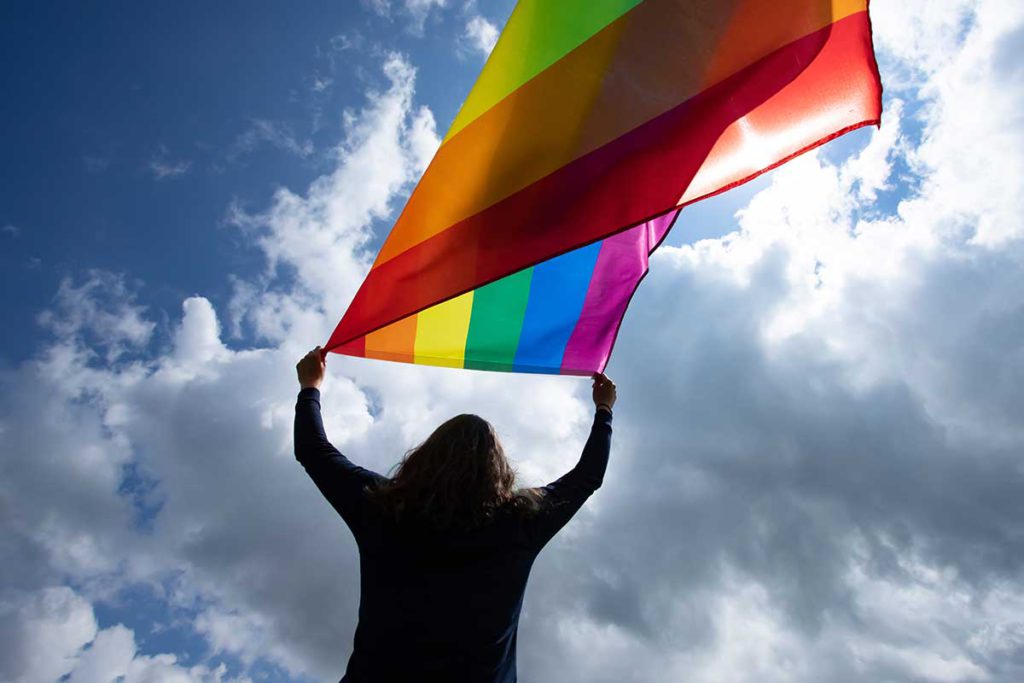Those who identify as lesbian, gay, bisexual, transgender, queer or questioning (LGBTQ+) often face social stigma, discrimination and other challenges. According to The Trevor Project’s 2023 national survey, 67% of LGBTQ young people reported anxiety and 54% experienced depression, yet only 44% of those surveyed were actually able to recieve the mental healthcare treatment they needed.
What Is Pride Month?
The goal of Pride Month is to celebrate the impact and contributions of the LGBTQ+ community throughout history. As we shine a light on this population, it’s important to also consider and advocate for greater access and efforts to improve the health and wellness of the LGBTQ+ community. People who identify as LGBTQ+ are at risk for not receiving the level of care they need, oftentimes because of a fear of seeking out help or discrimination.
What Concerns Exist for LGBTQ+ Health Awareness?
There are many ways in which limited access to care impacts this community. Here are some examples:
- Employment discrimination that limits access to jobs that provide health insurance
- Inability to receive health insurance coverage from their partner due to harmful company policies
- Increasingly high costs causing many to be unable to afford vital preventative health care
- Social stigma and discrimination that results in individuals feeling less comfortable discussing their specific health needs
- Disparities in the level of care received
What Changes Are Needed to Address LGBTQ+ Health Disparities?
Pride Month is a great opportunity to check in on resources for those looking to get involved and enact change for themselves and their communities. Below are some ways you can help in this effort to improve LGBTQ+ health:
- Encourage employers to recognize those within the community as viable partners in relationships who deserve the same type of health coverage given to others
- Encourage state lawmakers to pass laws that encourage improved access to healthcare as well as affordable health insurance
- Work to ensure your own practice never discriminates against people who have different lifestyles or physical needs than others – eliminate all LGBTQ+ discrimination in your practice
- Seek out care. Never hesitate to find the support you need and want. Mental health is just as important as physical health. So, it is critical to take time to think about your needs and get any support necessary. Whether that’s making a call to the 988 Suicide and Crisis Lifeline for yourself or a loved one, or taking the time to fill out a treatment request, resources are available.
- Help someone who is LGBTQ+ struggling with their health to get the care they need. A donation, a trip to a doctor’s appointment or just a bit of emotional support can go a long way
If you know someone in the LGBTQ+ community who is struggling with substance use disorder (SUD) but is looking for support, begin the journey to recovery by using the addiction treatment needs assessment tool.
In addition, the Treatment Connection website in general can help those in need find affirming care providers. There are many organizations, hospitals, medical providers and treatment centers working hard to do their part to provide better access to standardized care for everyone.
DISCLAIMER: THIS BLOG POST DOES NOT PROVIDE MEDICAL ADVICE
The information, including but not limited to, text, graphics, images, and other material (collectively, “Information”) contained on this blog post are for informational purposes only. None of the Information is intended to be a substitute for professional medical advice, diagnosis, or treatment. Always seek the advice of your physician or other qualified health care provider with any questions you may have regarding a medical condition or treatment and before undertaking a new health care regimen, and never disregard professional medical advice or delay in seeking it because of something you have read on this blog post.



